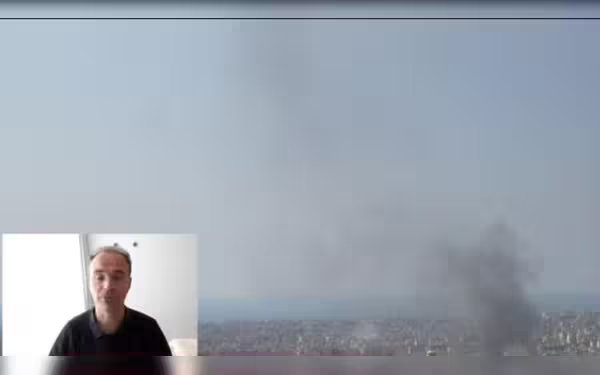Saturday, November 16, 2024 07:24 PM
Axis Of Resistance Faces Challenges Amid Israeli Attacks
- Axis of resistance fails to respond to Israeli military actions.
- Coalition's weakened position raises concerns for regional stability.
- Future strategies of resistance groups remain uncertain.
 Image Credits: france24
Image Credits: france24The axis of resistance struggles to respond to Israeli attacks, raising concerns about regional stability and future strategies.
The ongoing conflict in the Middle East has long been a complex web of alliances and enmities, particularly involving the so-called "axis of resistance." This term refers to a coalition of groups, primarily backed by Iran, including Hezbollah, Hamas, and various factions in Iraq, Syria, and Yemen. These groups have historically positioned themselves against Israel, often engaging in military and political maneuvers to counter Israeli influence in the region. However, recent developments have raised questions about the effectiveness and responsiveness of this coalition in the face of Israeli attacks.
Filippo Dionigi, a senior lecturer in politics and international relations at the University of Bristol, has pointed out that the axis of resistance has "thus far failed to react" to the recent Israeli military actions. This observation suggests a significant shift in the balance of power in the region. The lack of a robust response from these groups indicates that they may be in a "far weaker position" than previously thought. Such a scenario could embolden Israel, leading it to capitalize on what it perceives as a successful strategy against its adversaries.
The implications of this situation are profound. If the axis of resistance continues to remain passive, it could lead to a further escalation of Israeli military operations, potentially destabilizing the region even more. The dynamics of power in the Middle East are constantly shifting, and the failure of these groups to mount a significant response could alter the landscape of regional politics. It raises the question: what strategies will the axis of resistance adopt moving forward? Will they regroup and strategize, or will they remain on the defensive?
The current state of affairs presents a critical juncture for the axis of resistance. The need for a cohesive and effective response to Israeli actions has never been more pressing. As the situation evolves, it will be essential for these groups to reassess their strategies and alliances. The future of the Middle East may very well depend on their ability to adapt and respond to the challenges they face. Understanding these dynamics is crucial for anyone interested in the geopolitical landscape of the region.













